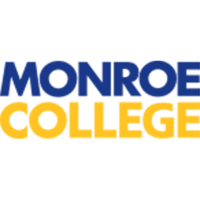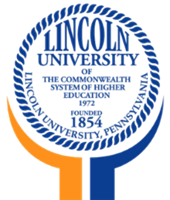What do they do?
Assist other social and human service providers in providing client services in a wide variety of fields, such as psychology, rehabilitation, or social work, including support for families. May assist clients in identifying and obtaining available benefits and social and community services. May assist social workers with developing, organizing, and conducting programs to prevent and resolve problems relevant to substance abuse, human relationships, rehabilitation, or dependent care.
Also known as:
Addictions Counselor Assistant, Advocate, Clinical Assistant, Human Services Assistant, Residential Care Assistant, Social Services Aide, Social Services Assistant, Social Work Assistant, Social Work Associate, Social Worker Assistant
-
12%
Change
Ranks #32 in job growth rate2,300Job Openings
Ranks #6 in net job growth
-
Monroe College
Bronx, NY
-
Lindsey Wilson College
Columbia, KY
-
Lincoln University
Lincoln University, PA
-
Columbia College
Columbia, MO
-
Boricua College
New York, NY
Looking for colleges that offer a specific major? Use the College Match Tool to find your best-matched schools and discover your estimated Net Price!
- Doctorate or Professional Degree (2%)
- Master's degree (15%)
- Bachelor's degree (36%)
- Associate's degree (11%)
- Some college, no degree (22%)
- High school diploma equivalent (13%)
- Less than high school diploma (2%)
People in this career often have these skills:
- Active Listening - Giving full attention to what other people are saying, taking time to understand the points being made, asking questions as appropriate, and not interrupting at inappropriate times.
- Speaking - Talking to others to convey information effectively.
- Social Perceptiveness - Being aware of others' reactions and understanding why they react as they do.
- Service Orientation - Actively looking for ways to help people.
- Reading Comprehension - Understanding written sentences and paragraphs in work-related documents.
- Coordination - Adjusting actions in relation to others' actions.
- Writing - Communicating effectively in writing as appropriate for the needs of the audience.
- Critical Thinking - Using logic and reasoning to identify the strengths and weaknesses of alternative solutions, conclusions, or approaches to problems.
- Monitoring - Monitoring/Assessing performance of yourself, other individuals, or organizations to make improvements or take corrective action.
- Persuasion - Persuading others to change their minds or behavior.
People in this career often know a lot about:
- Customer and Personal Service - Knowledge of principles and processes for providing customer and personal services. This includes customer needs assessment, meeting quality standards for services, and evaluation of customer satisfaction.
- Psychology - Knowledge of human behavior and performance; individual differences in ability, personality, and interests; learning and motivation; psychological research methods; and the assessment and treatment of behavioral and affective disorders.
- Therapy and Counseling - Knowledge of principles, methods, and procedures for diagnosis, treatment, and rehabilitation of physical and mental dysfunctions, and for career counseling and guidance.
- English Language - Knowledge of the structure and content of the English language including the meaning and spelling of words, rules of composition, and grammar.
- Administrative - Knowledge of administrative and office procedures and systems such as word processing, managing files and records, stenography and transcription, designing forms, and workplace terminology.
People in this career often have talent in:
- Oral Expression - The ability to communicate information and ideas in speaking so others will understand.
- Oral Comprehension - The ability to listen to and understand information and ideas presented through spoken words and sentences.
- Written Comprehension - The ability to read and understand information and ideas presented in writing.
- Written Expression - The ability to communicate information and ideas in writing so others will understand.
- Problem Sensitivity - The ability to tell when something is wrong or is likely to go wrong. It does not involve solving the problem, only recognizing that there is a problem.
- Deductive Reasoning - The ability to apply general rules to specific problems to produce answers that make sense.
- Speech Clarity - The ability to speak clearly so others can understand you.
- Speech Recognition - The ability to identify and understand the speech of another person.
People in this career often do these activities:
- Conduct diagnostic tests to determine patient health.
- Examine patients to assess general physical condition.
- Develop treatment plans for patients or clients.
- Teach life skills or strategies to clients or their families.
- Write reports or evaluations.
- Maintain social services program records.
- Visit individuals in their homes to provide support or information.
- Help clients get needed services or resources.
- Interview clients to gather information about their backgrounds, needs, or progress.
- Present social services program information to the public.
- Refer clients to community or social service programs.
- Collaborate with other professionals to assess client needs or plan treatments.
- Demonstrate activity techniques or equipment use.
- Assist clients in handling details of daily life.
- Explain regulations, policies, or procedures.
- Monitor nutrition related activities of individuals or groups.
- Advise clients or community groups on health issues.
- Transport clients to appointments.
- Provide basic information to guests, visitors, or clients.
This page includes data from:

 Occupation statistics: USDOL U.S. Bureau of Labor Statistics Occupational Employment Statistics
Occupation statistics: USDOL U.S. Bureau of Labor Statistics Occupational Employment Statistics









